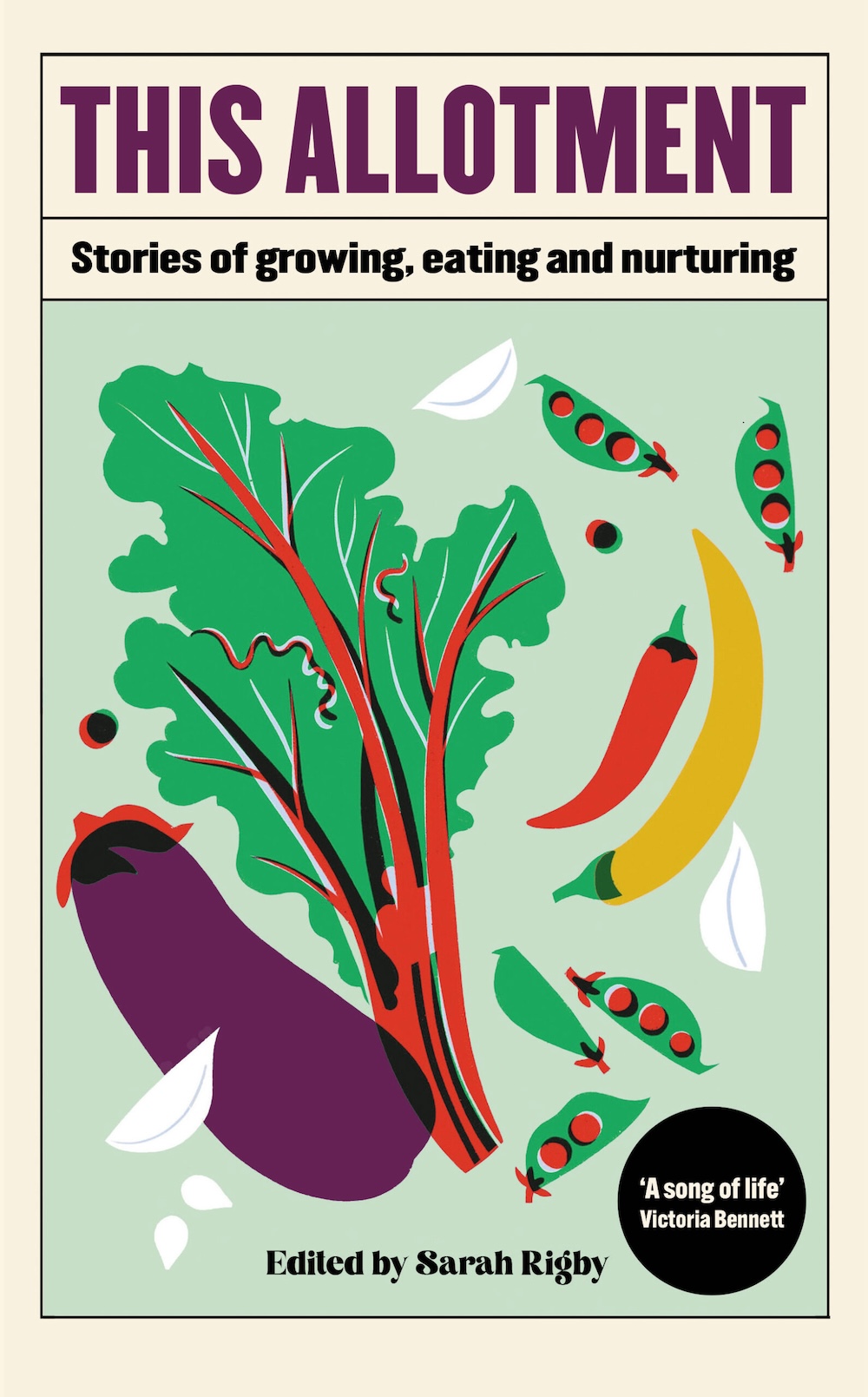Published on Thursday by Elliott & Thompson, ‘This Allotment: Stories of growing, eating and nurturing’ (ed. Sarah Rigby) tells of the power of land and growing as a means of connecting people — to their past, to others, and to themselves, writes Ben Ewart Dean.

There is an bewildering array of allotment-related books. The bulk of these are technical guides for the active allotmenteer, but for someone wanting to dig further into the subject there are many others, including a few excellent books about the fascinating history of allotments (Of Cabbages and Kings by Caroline Foley for instance, or Twig Way’s brisk Allotments), a handful of humorous biographies and David Crouch and Colin Ward’s seminal socio-political work, The Allotment (recently republished with a new introduction by Crouch, and a foreword by Olivia Laing).
This Allotment is something quite different. It is a collection of writings from 12 diverse voices, approaching the subject from a range of (often surprising) angles. Together, it presents a multi-faceted portrait of this endlessly interesting (and uniquely British) subject. Most valuably, it foregrounds the voices of actual allotmenteers, sharing their stories and reflecting on their attachments to their allotted 10 poles’ worth of land and to the activity of growing.
The chapters range in tone as well as focus. The collection opens with a pair of very personal pieces; Kirsteen McNish recounting a series of thwarted gardening endeavours (echoed later in the book with Sara Venn’s heartbreaking account of the precarious existence of being a home-renting allotmenteer), followed by Olia Hercules, a Ukrainian living in the UK, drawing together her experiences of growing in the two places. This is followed by a wide-ranging conversation between David Keenan and Heather Leigh, touching on meditation, the pleasures of wildlife, recycling, broad beans and the scorched-earth policy of new plot-holders. Later, Rebecca Schiller presents an experimental piece uniting three very different narratives, including her own experiences of growing. Concluding the collection is a beautiful poem by Rob Cowen. Beyond these affecting personal accounts, there are chapters that channel other voices: JC Niala’s gentle and insightful narrative of her time spent undertaking ethnographic research on an Oxford allotment; Alice Vincent’s short portrait of a London grower (an offshoot of her book Why Women Grow); and Graeme Rigby’s sympathetic rendering of three first-person interviews he undertook for his 1992 book Peaceable Kingdoms.
The subject of allotments can often be presented as old-fashioned (when you mention the subject to most people, they will probably mention Dig For Victory, or happy childhood memories of visiting their grandfather’s plot), but this is by no means a cosy collection. Many of the accounts in the book are painfully personal, and most of the writers make every effort to highlight the back-breaking work and seemingly endless disappointments involved in growing. There are also plenty of uncomfortable truths contained within these pages; Marchelle Farrell reflects on her entrenched guilt about growing — she grew up in Trinidad, and the view of many in her community is that any form of growing is an uncomfortable reminder of work that their enslaved ancestors were forced to do. There is also Sui Searle’s ode to the pleasures of community growing, in which she interrogates the notion of self-sufficiency, presenting it as having been fuelled in recent years by a social media-driven quest for individualism.
At the centre of the book lies an extensive piece by Jenny Chamarette. It is by some measure the longest in the collection, and its scope is breathtaking — encompassing Jenny’s process of learning to grow in the face of often unmanageable pain, the many definitions of ‘yield’, the climate crisis and the pandemic, and Jenny’s humility in the face of nature. This final subject is one that chimes throughout the book, and many of the writers speak eloquently of understanding and working with the land, and of gradually accepting that their produce (and they themselves) are subject to the whims of nature. Ultimately, if there is one overarching theme to this book, it’s of the power of land and growing as a means of connecting people — to their past, to others, to themselves.
As an allotment-lover, I often struggle to pin down exactly what it is about them that I find so compelling, and editor Sarah Rigby’s introduction to This Allotment suggests that this is not an uncommon problem. She recounts that her original intention in putting this collection together was her own attempt to get to grips with where her interest in the subject began. What she has created is an utterly unique book, and a most valuable addition to the canon of allotment-related books.
*
‘This Allotment’ is published this Thursday, 6th June. Order your copy here (£14.24).
Ben Ewart Dean is a photographer and film-maker. His allotment-related work is On Allotments, a creative project about allotments, gardening and the land.